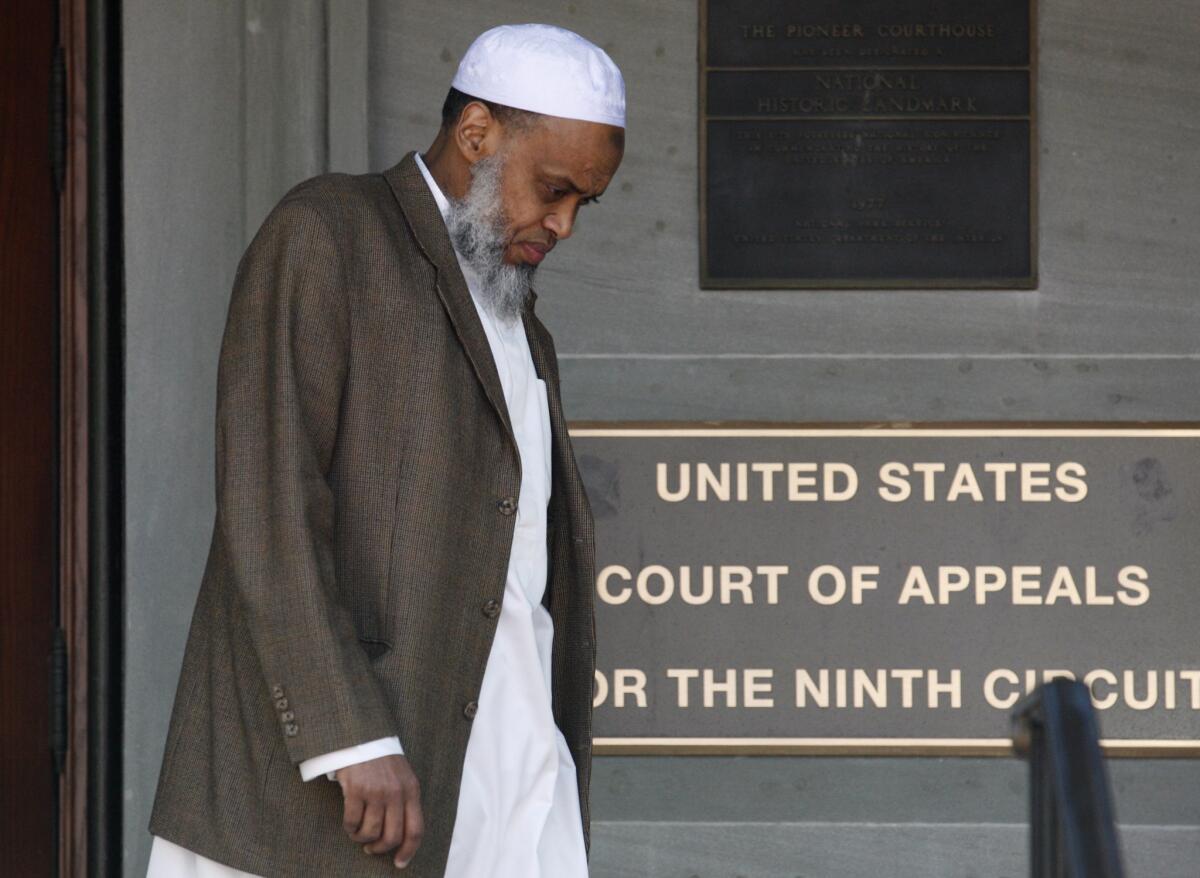Editorial: The ‘terrorist screening database’: Are they all terrorists?

- Share via
This page has criticized the government’s infamous “no-fly list” because it is so manifestly susceptible to error. Now comes new information about how the federal government compiles the bigger, broader “terrorist screening database” from which the no-fly list is drawn — and how that database is being used to deny people a chance for U.S. citizenship.
The database, also known as the “terrorist watch list,” reportedly holds more than 1 million names of suspected terrorists. But according to the American Civil Liberties Union, which filed a lawsuit on the subject last month, the government has failed to ensure that innocent people are not listed in the database or, if they do end up there, that they are promptly removed. In 2013, according to a government filing in another lawsuit, 468,749 people were nominated for the database and only 1% were rejected — even though the Government Accountability Office found in 2009 that 35% of the nominations were outdated and that tens of thousands of names had been entered into the database without an adequate factual basis. What’s more, the nominating guidelines allow people to be listed simply because they are related to or know someone who is suspected of terrorism, even when there is “insufficient derogatory information” for the person to otherwise be listed on his own.
If being on the list had no practical effect, that would be one thing. But according to the ACLU, the Department of Homeland Security, through its U.S. Citizenship and Immigration Services division, checks the names of people seeking to live legally in the United States against the list. If there is a match, the applicant is deemed a “national security concern” and his or her application for citizenship or lawful permanent resident status can be denied or left in limbo. If true, this is worrisome. We expect the government to refuse U.S. citizenship or residency to terrorists and even suspected terrorists, but we also expect its information to be carefully screened and credible.
Here’s another concern: Sometimes, according to the ACLU, Citizenship and Immigration Services asks questions on the FBI’s behalf during naturalization interviews with applicants, a troubling blurring of lines between immigration work and law enforcement. The agency also denies naturalization to people who have donated to groups the government believes are linked to terrorism, even if there is no evidence that the applicants knew of the terror connections.
If the ACLU is right, the rules needs to be rethought. Yes, the government has a responsibility to protect the country from terrorists. But it shouldn’t require a legal challenge for the government to respect the basic civil liberties and due process rights of those who apply to become American citizens.
Follow the Opinion section on Twitter @latimesopinion
More to Read
A cure for the common opinion
Get thought-provoking perspectives with our weekly newsletter.
You may occasionally receive promotional content from the Los Angeles Times.









